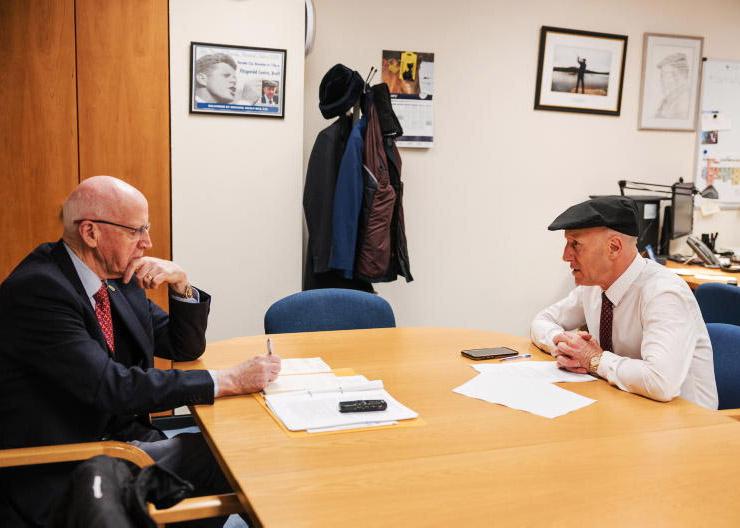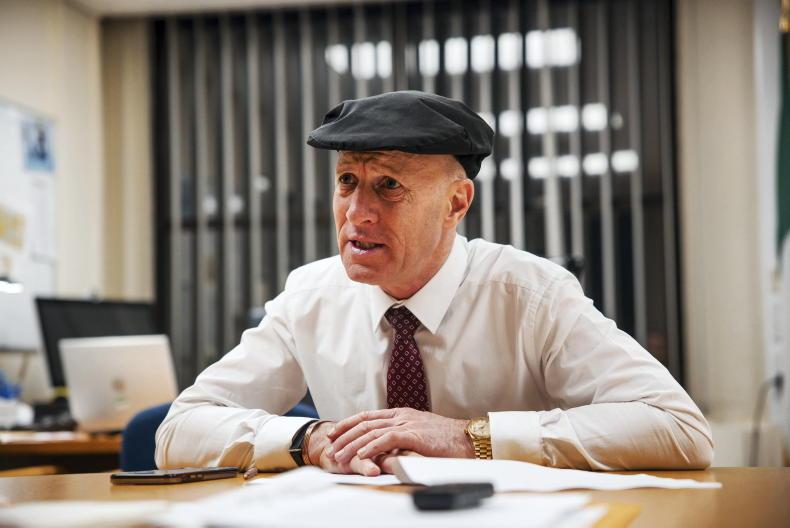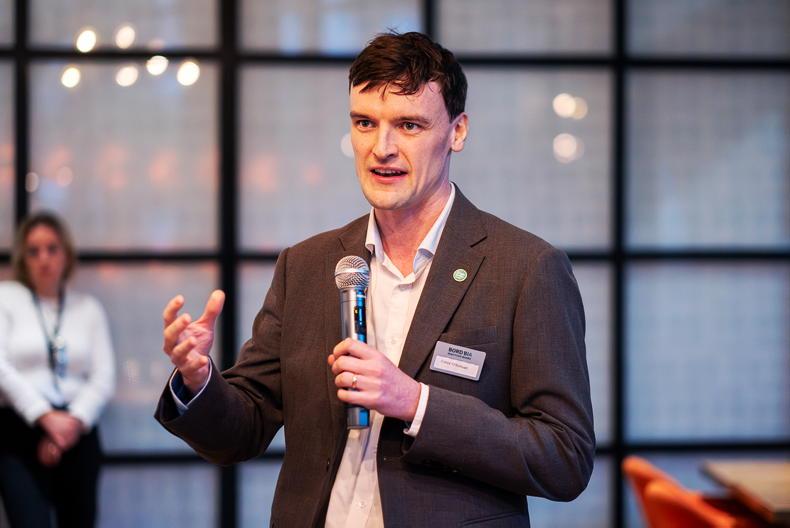Speaking on RTE's Countrywide show on Saturday, the head of Teagasc raised question marks over the future of suckler farming beyond next month's immediate Brexit threat.
"There has to be compensation in the event of a no-deal, because the potential implications would be just catastrophic," Boyle said, describing as "good news" current discussions on farmer compensation for up to three years.
"Beef farm incomes would drop by around half," he warned. "In the longer term, of course, the real worry is that the British would revert to their traditional cheap food policy."
Such a shift in the UK market, which imports over half of Ireland's beef production, would force deep change.
Even on our research farms, it is still very challenging to make any kind of a decent margin
"If you look at the suckling sector, which is a hugely challenged sector, even on our research farms with the best technical applications, it is still very challenging to make any kind of a decent margin," he said.
"On the fattening side, certainly if you factor in subsidies and direct payments, there are some producers doing very well."
Boyle accepted broadcaster Damien O'Reilly's suggestion that suckler farmers should look for "alternatives" past the proposed three-year Brexit compensation scheme.
He said some farmers have already switched to dairy and interest remained high in Teagasc's dairying and farm manager courses, with around 50 students currently enrolled in its new entrant course alone. However, he warned of the high level of investment needed: "You need to get basic training, dairying is a very different business and lifestyle."
Greenhouse gas emissions
At the same time, Boyle warned of the pressure to reduce greenhouse gas emissions.
With no "magic bullet" for agriculture comparable to electric cars in transport, he said a combination of new farming techniques, reduced stock numbers and afforestation would be required.
"Emissions and livestock numbers go hand in hand. How that's going to pan out in terms of the distribution between dairy cattle and beef cattle is really a matter for conjecture," he said.
There's a major problem with the requirement to re-plant the forest
Boyle noted that forestry plantings are at a record low, despite its potential to take 3mt out of the 20mt of carbon dioxide equivalent emitted by Irish agriculture every year.
"I think there's a major problem with the requirement to re-plant the forest once it's felled," he said. "Personally I think it puts off farmers."









SHARING OPTIONS